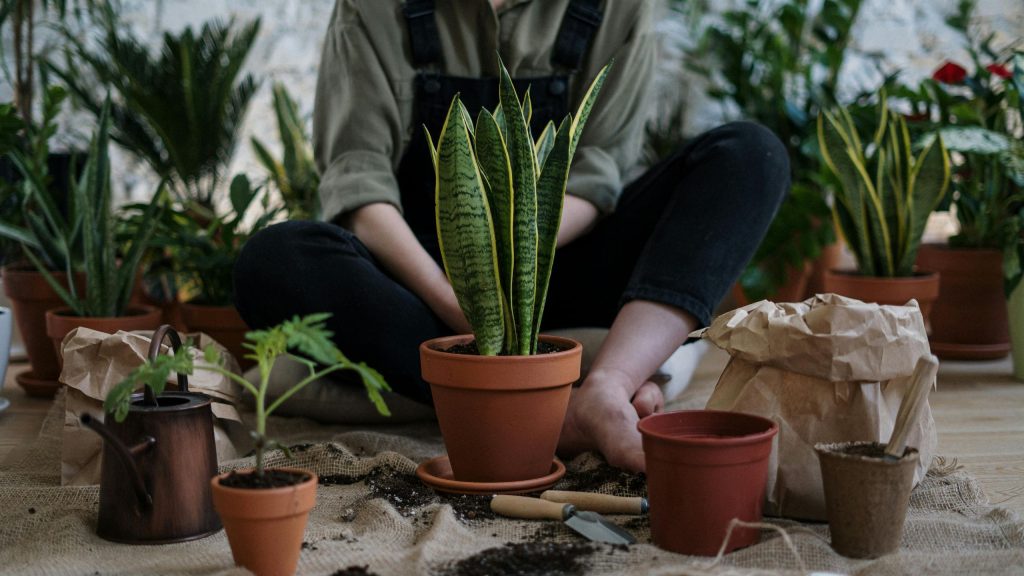Becoming a gardener in the UK offers a chance to turn your love for the outdoors and plants into a career. As a gardener, you get to work with nature, nurture gardens, and bring beauty and tranquility to outdoor spaces.
If you are interested in plants, being active outdoors, doing creative work with your hands, and providing a valued service, then gardening could be a fantastic career path for you.
Here is a guide to starting your career as a professional gardener in the UK.
Getting the Education and Training
Gardening covers a wide range of specialized skills, so education and training are key. Here are some options to gain the knowledge you need:
Apprenticeship
Apprenticeships allow you to earn while you learn on the job. Many provide training in general gardening skills like planting, weeding, pruning, lawn care, and using equipment. Apprenticeships typically last 1-2 years.
College Courses
Choose from full-time, part-time, or short courses focused on horticulture and gardening. Subjects can include soil science, plant care, garden design, turf management, and more. Courses range from a few weeks to 3 years.
Volunteering
Volunteer at gardens, nurseries, or community green spaces to gain experience. You can learn on the job from professionals and attend free workshops.
Getting Certified
Consider getting certified in skills like chemical spraying, chainsaw use, machinery operation, and first aid. Certifications make you more qualified for many gardening jobs.
Choosing a Gardening Career Path
There are diverse roles within gardening that allow you to focus on your specific interests and talents:
Landscaper
Design, build, and maintain gardens, outdoor living areas, and green spaces. Landscapers work on small residential gardens to large public parks.
Groundskeeper
Maintain areas like school and church yards, sports fields, cemeteries, and estates. Duties involve mowing, planting, litter removal, and turf care.
Nursery Worker
Raise plants from seeds and cuttings, care for them as they grow, and get them ready for sale at garden centers and nurseries.
Horticultural Therapist
Use gardening to help rehabilitate people with disabilities, illnesses, addictions, and other challenges. Therapists work in hospitals, care homes, prisons and more.
Gardening Business Owner
Start your own gardening, landscaping, or lawn care business for flexibility and independence. You can offer services to domestic and/or commercial clients.

Getting Work Experience
Gaining hands-on experience is invaluable for launching a gardening career:
- Find paid gardening work with landscaping companies, nurseries, estates, or local authorities.
- Do voluntary gardening work at botanical gardens, city parks, hospices, churches, or historical sites.
- Complete internships through college horticultural programs.
- Shadow experienced gardeners to observe their work.
- Take part-time, seasonal, or temporary gardening jobs.
- Respond to job ads for gardeners and groundskeepers as opportunities arise.
- Market your services as a self-employed gardener to get experience.
Developing Your Skills and Knowledge
To provide professional gardening services, continually expand your skills and knowledge:
- Take courses on plant care, tools and machinery, garden construction, and business.
- Attend workshops hosted by gardening companies and organizations.
- Read gardening books and magazines or listen to educational podcasts.
- Join associations like the Chartered Institute of Horticulture for training and networking.
- Follow gardening experts and specialty accounts on social media.
- Visit public and Botanic Gardens to get inspiration and learn.
- Experiment growing plants, trying gardening techniques, and practicing designs.
Getting Licensed and Insured
Proper licensing and insurance protect you and give you credibility:
- Get qualified to use hazardous tools like chainsaws safely.
- Get trained and certified in using pesticides and chemicals responsibly.
- Obtain a waste carrier license if transporting garden waste and materials.
- Purchase suitable public liability insurance based on your services.
- Register with HMRC and pay income tax and National Insurance contributions.
Starting Your Own Gardening Business
Being an independent gardener involves some business basics:
- Decide on your target clients and services to offer. Research competitors.
- Create a business plan and work out financing and costs.
- Choose your business name, branding, marketing, and processes.
- Build a portfolio showcasing your work and gardening style.
- Create proposals, contracts, and billing procedures for clients.
- Network, advertise, and use social media to find clients.
- Invest in reliable tools, machinery, IT, transportation, safety gear.
- Track income, expenses, profits, losses, and tax liability.
FAQs about Becoming a Gardener in the UK
1. What qualifications do I need to be a gardener?
Answer: There are no mandatory qualifications, but training and certification in areas like pesticide application, machinery, first aid, and business will expand your skills and job prospects. An apprenticeship, college courses, or industry recognized qualifications demonstrate your knowledge.
2. How much can I earn as a gardener?
Answer: Salaries vary based on experience, specialization, location, and whether you work for yourself or a company. Entry-level gardeners can earn £15,000-£21,000, while experienced gardeners earn £21,000-£35,000 on average.
3. What is the job outlook for gardeners in the UK?
Answer: The job outlook is strong due to a rising interest in gardening and insufficient numbers entering the industry. Demand is high for qualified gardeners. Seasonal and part-time opportunities are widely available.
4. How do I start getting gardening clients?
Answer: To get your first gardening clients, let friends and family know you are available, network with neighbors, use social media, promote yourself in local papers and bulletin boards, offer reduced pricing as you build experience, partner with related businesses, gain referrals through satisfied clients.
5. What are the main tasks of a gardener?
Answer: Main gardening tasks include planting, weeding, pruning, lawn mowing, hedge trimming, leaf clearing, pest control, watering, fertilizing, composting, clearing gardens for winter. Day to day work depends on the season and type of gardening you are doing.
Conclusion
Becoming a gardener in the UK involves getting qualified through training courses and work experience, choosing a specialty, gaining business skills, and continually developing your expertise.
With hard work and persistence, you can turn your passion for gardening into a rewarding and enjoyable career working with nature and bringing beauty to gardens. The demand for skilled gardeners makes it an ideal time to join this vibrant industry.

